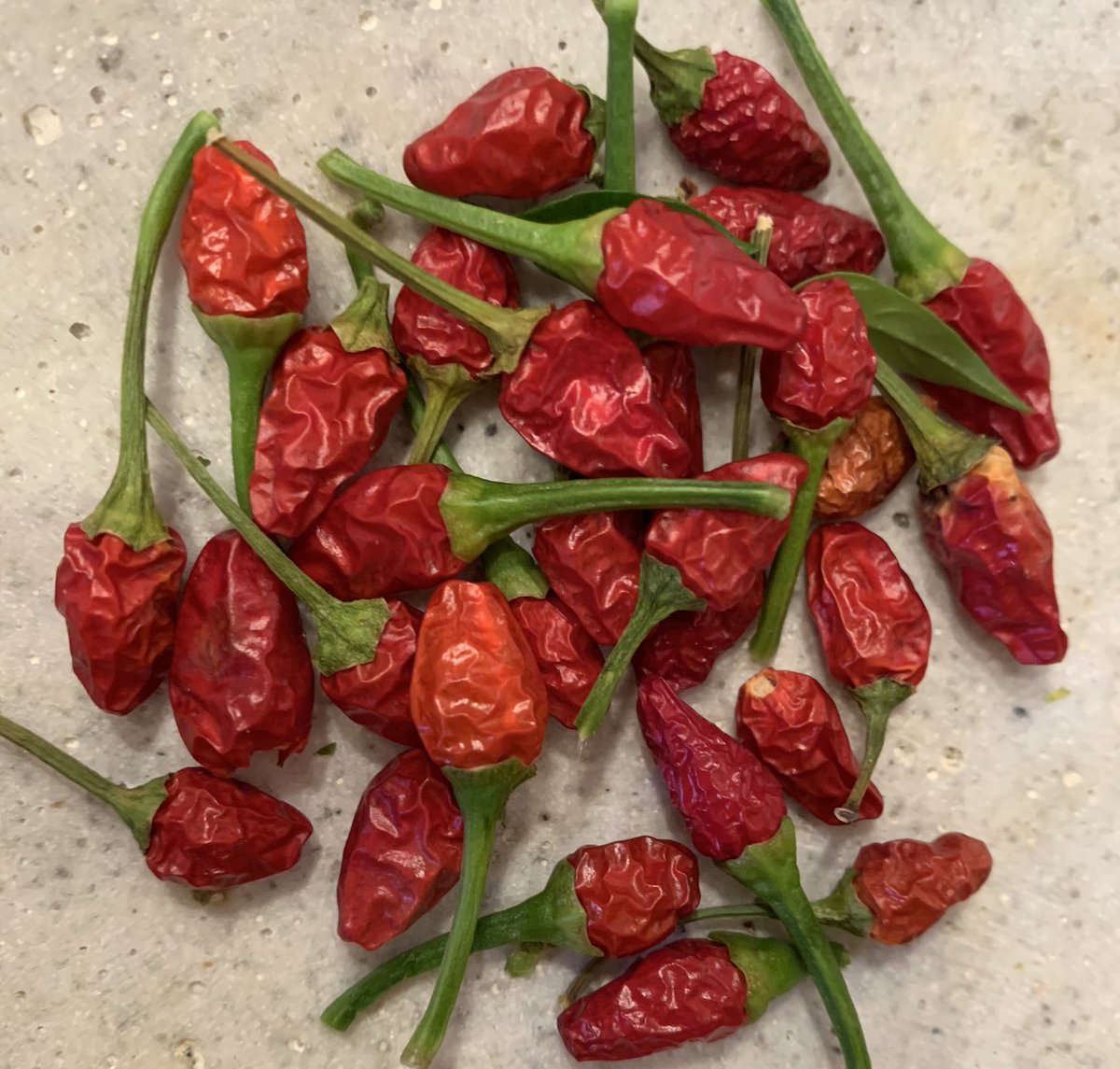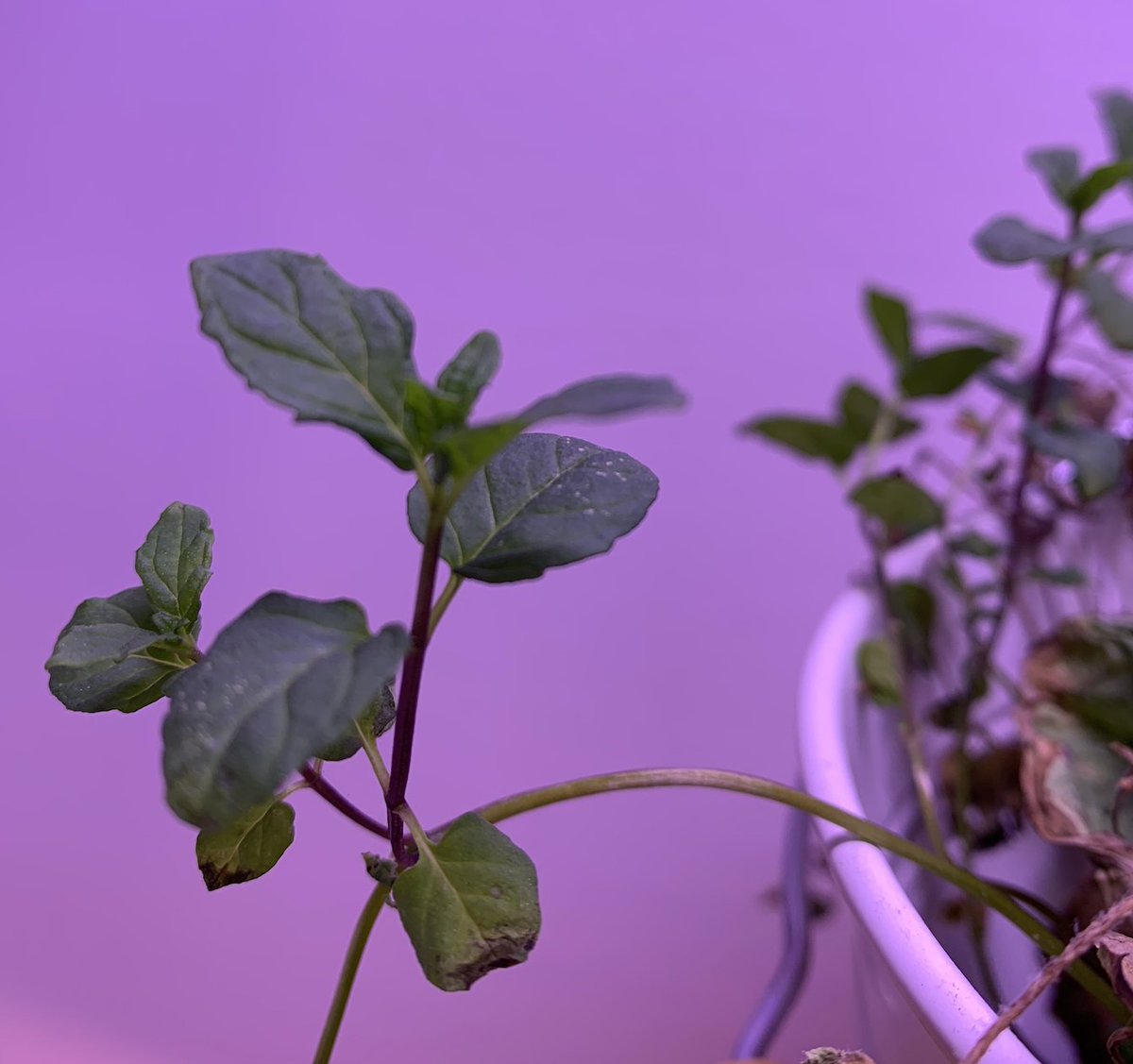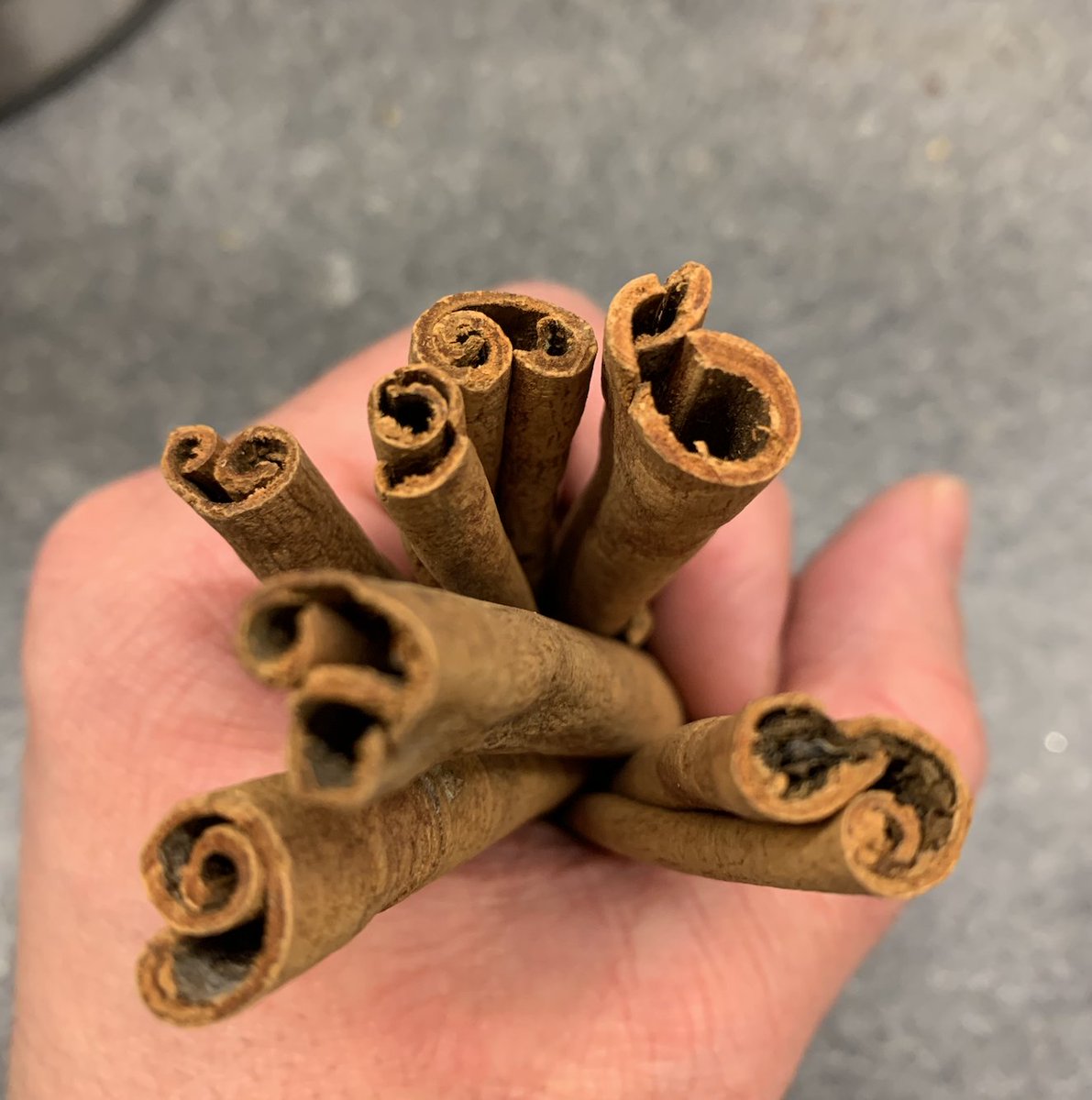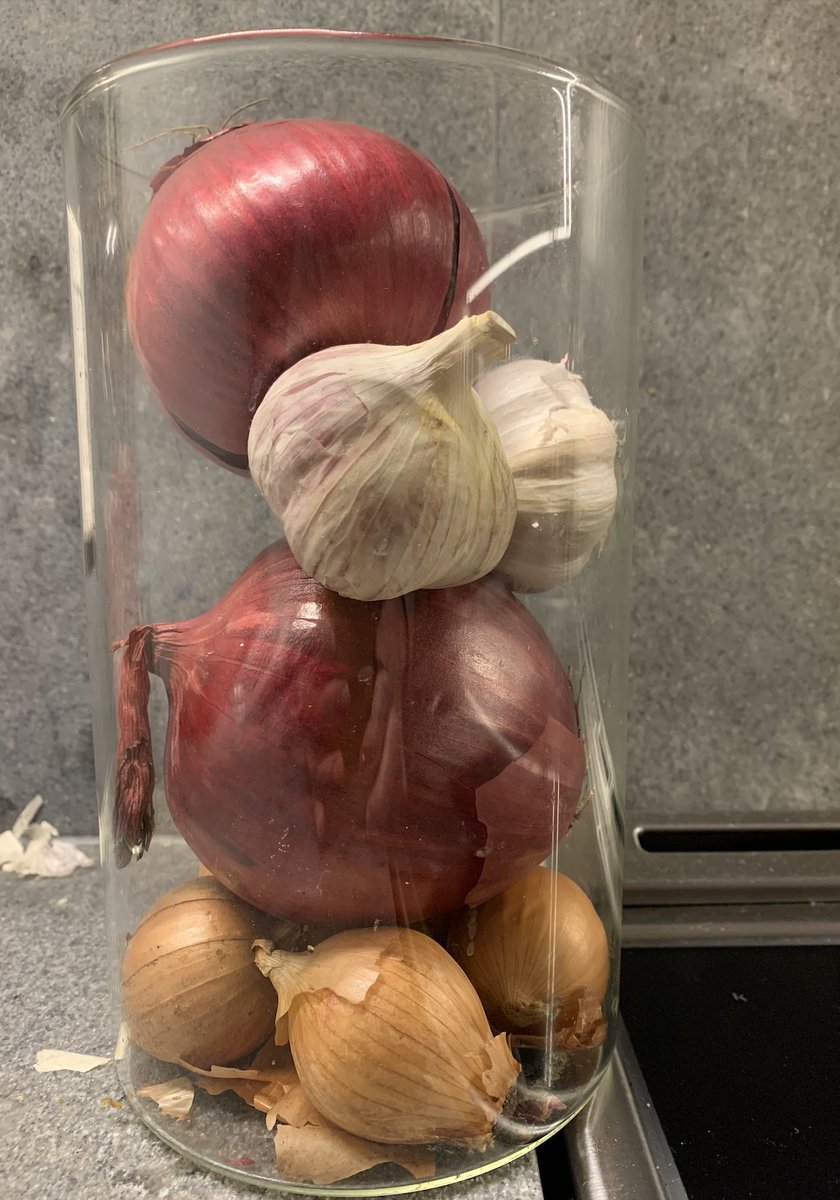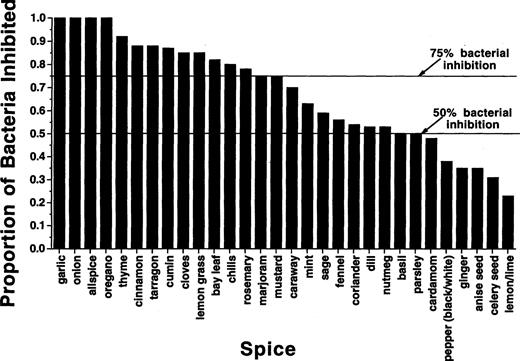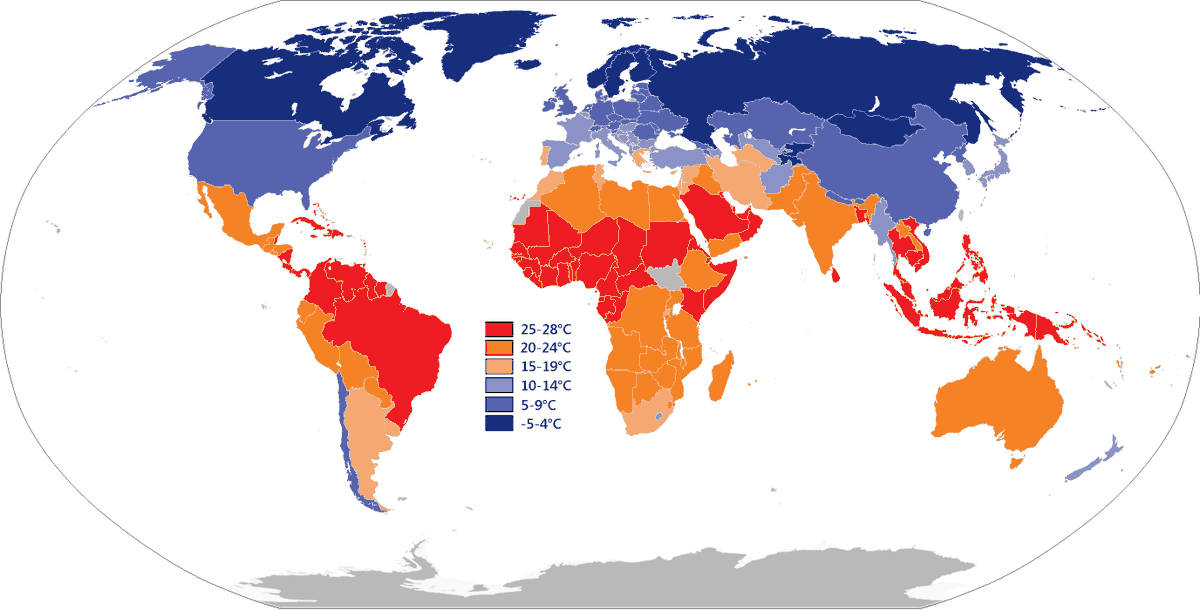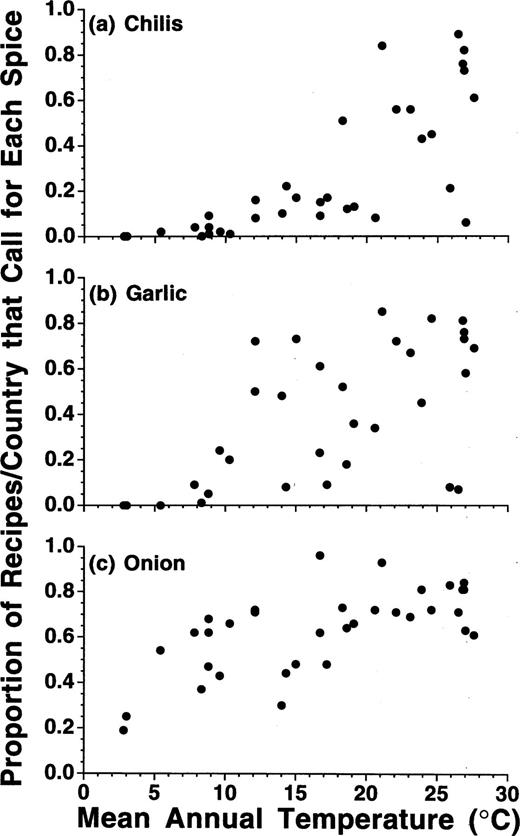Why do we like spices? They're basically poison.
Chili peppers are more easily dispersed by birds than mammals. So they evolved the chemical capsaicin to cause a burning sensation only in mammals, not birds.
Why are humans are the only mammals to eat them?
Chili peppers are more easily dispersed by birds than mammals. So they evolved the chemical capsaicin to cause a burning sensation only in mammals, not birds.
Why are humans are the only mammals to eat them?

Menthol, the chemical in mint, has the opposite effect, causing a cooling sensation. It's an insect repellent.
Cinnamaldehyde, the chemical in cinnamon, is also used as an insecticide.
Why do we like them if insects don't?
Cinnamaldehyde, the chemical in cinnamon, is also used as an insecticide.
Why do we like them if insects don't?
Onions and garlic, too! 

Garlic contains allicin and many other molecules to defend against herbivores.
Onions are literally designed to make us cry!
https://twitter.com/malharkamat/status/1321372325216841728?s=20


Garlic contains allicin and many other molecules to defend against herbivores.
Onions are literally designed to make us cry!
https://twitter.com/malharkamat/status/1321372325216841728?s=20
From an evolutionary viewpoint, every molecule a plant produces has to confer some benefit.
Sometimes the purpose is to attract (e.g. pollinators), but in many cases, the point is to repel.
They're poison. And sure enough, some are classified as dangerous, e.g. capsaicin:
Sometimes the purpose is to attract (e.g. pollinators), but in many cases, the point is to repel.
They're poison. And sure enough, some are classified as dangerous, e.g. capsaicin:
So, why do these poisons taste good?
The answer is, of course, evolution, but it's not straightforward.
It's easy to explain why we like sugar, fat, salt: we need those, so we evolved receptors to react to them with pleasure. But we don't need capsaicin or menthol to survive!
The answer is, of course, evolution, but it's not straightforward.
It's easy to explain why we like sugar, fat, salt: we need those, so we evolved receptors to react to them with pleasure. But we don't need capsaicin or menthol to survive!
The reason spices are good for us is that we have some common enemies with plants: microbes and fungi.
Most spices are potent antimicrobial substances.
From a 1999 study: "Garlic, onion, allspice, and oregano . . . inhibited or killed every bacterium they were tested on."
Most spices are potent antimicrobial substances.
From a 1999 study: "Garlic, onion, allspice, and oregano . . . inhibited or killed every bacterium they were tested on."
Spices are evolutionary adaptive because they reduce the odds of food poisoning.
Remarkably, this explains why they're more popular in hot climates—food spoils more easily there!
So it's no accident that northern European food tastes blander than Mexican or Thai food.
Remarkably, this explains why they're more popular in hot climates—food spoils more easily there!
So it's no accident that northern European food tastes blander than Mexican or Thai food.
But—and this is key—the adaptation is not due to natural selection, unlike, say, our fondness for sugar.
The taste receptors of Mexicans and Thais aren't different from those of Europeans. Capsaicin is painful for all.
Instead, the adaptation is cultural.
The taste receptors of Mexicans and Thais aren't different from those of Europeans. Capsaicin is painful for all.
Instead, the adaptation is cultural.
In olden times (basically pre-refrigeration), people tweaked recipes; when they used more antimicrobial plants, they got less sick.
So those recipes were culturally selected for. Over time, they became widespread.
This was true everywhere, but even more so in warm areas.
So those recipes were culturally selected for. Over time, they became widespread.
This was true everywhere, but even more so in warm areas.
And cultural norms are a strong force! Especially when it comes to food.
If your parents make really spicy chili dishes, you'll learn to like them too. You'll learn to interpret the pain as pleasure.
If your parents make really spicy chili dishes, you'll learn to like them too. You'll learn to interpret the pain as pleasure.
In fact, our culturally-evolved taste for spices is so powerful that it spurred some people to... sail to faraway countries to find them, discover new continents in the process, and change the course of world history.
All that for plant-made poison. https://twitter.com/etiennefd/status/1327677372729004035?s=20
https://twitter.com/etiennefd/status/1327677372729004035?s=20
All that for plant-made poison.
 https://twitter.com/etiennefd/status/1327677372729004035?s=20
https://twitter.com/etiennefd/status/1327677372729004035?s=20

 Read on Twitter
Read on Twitter